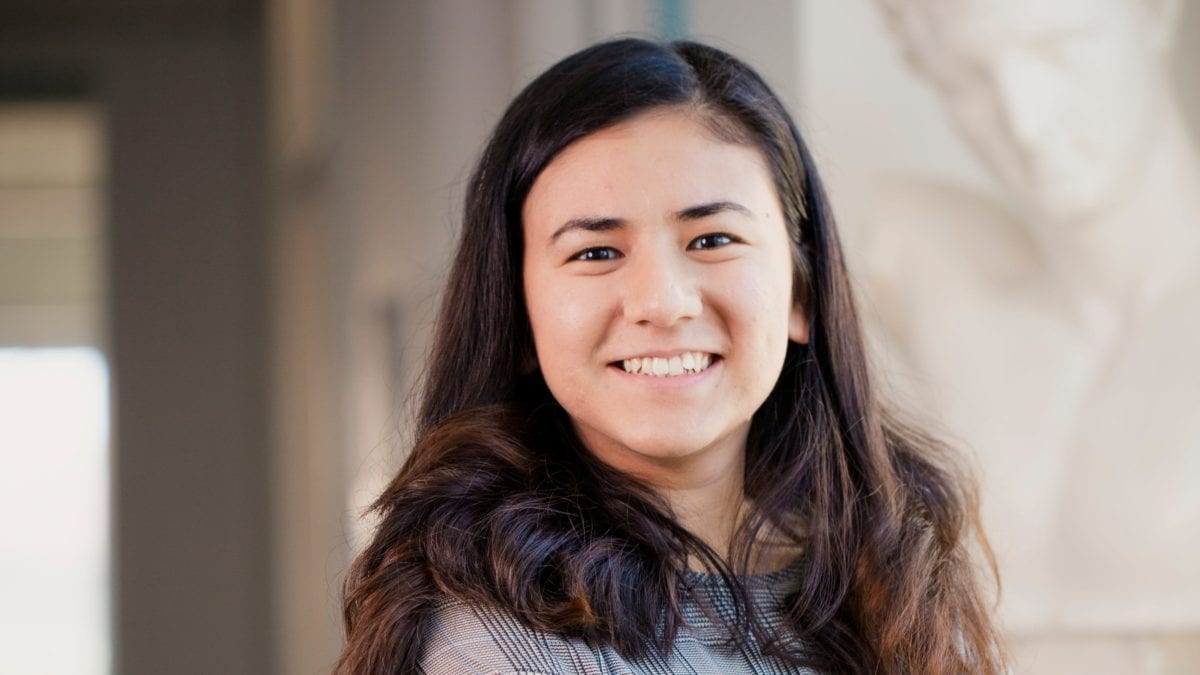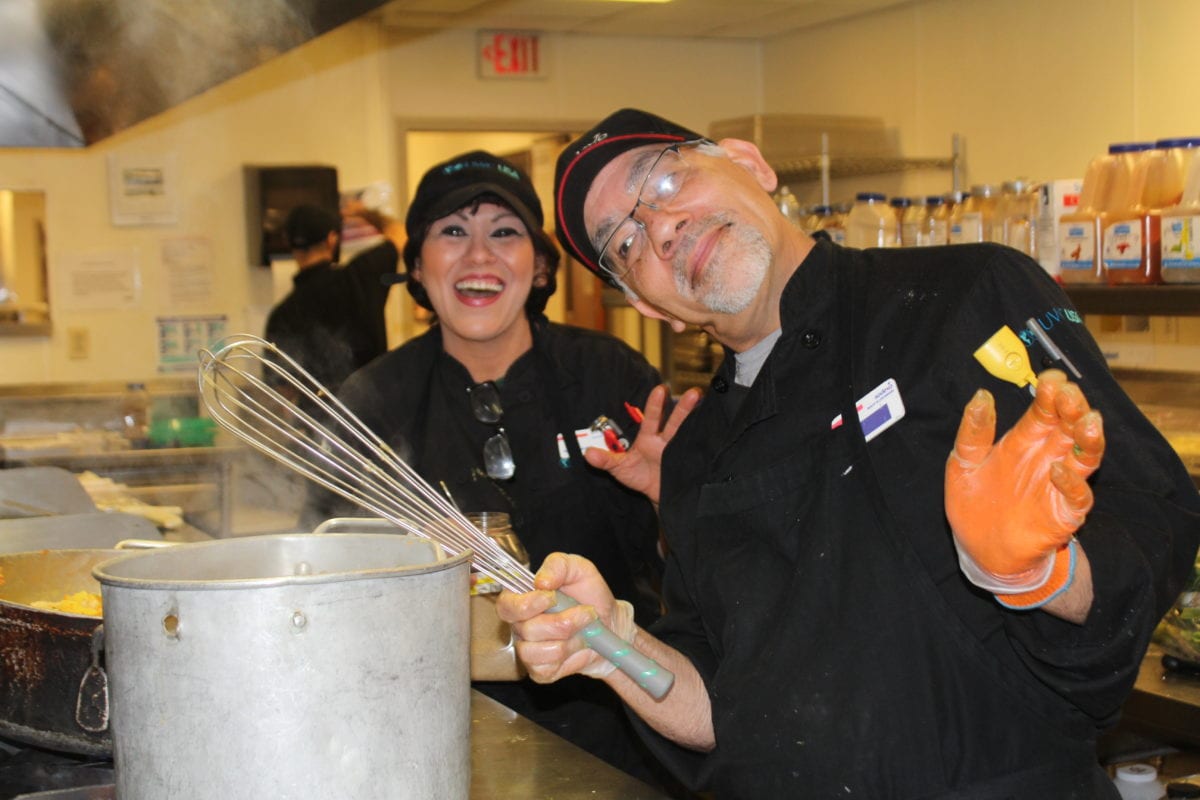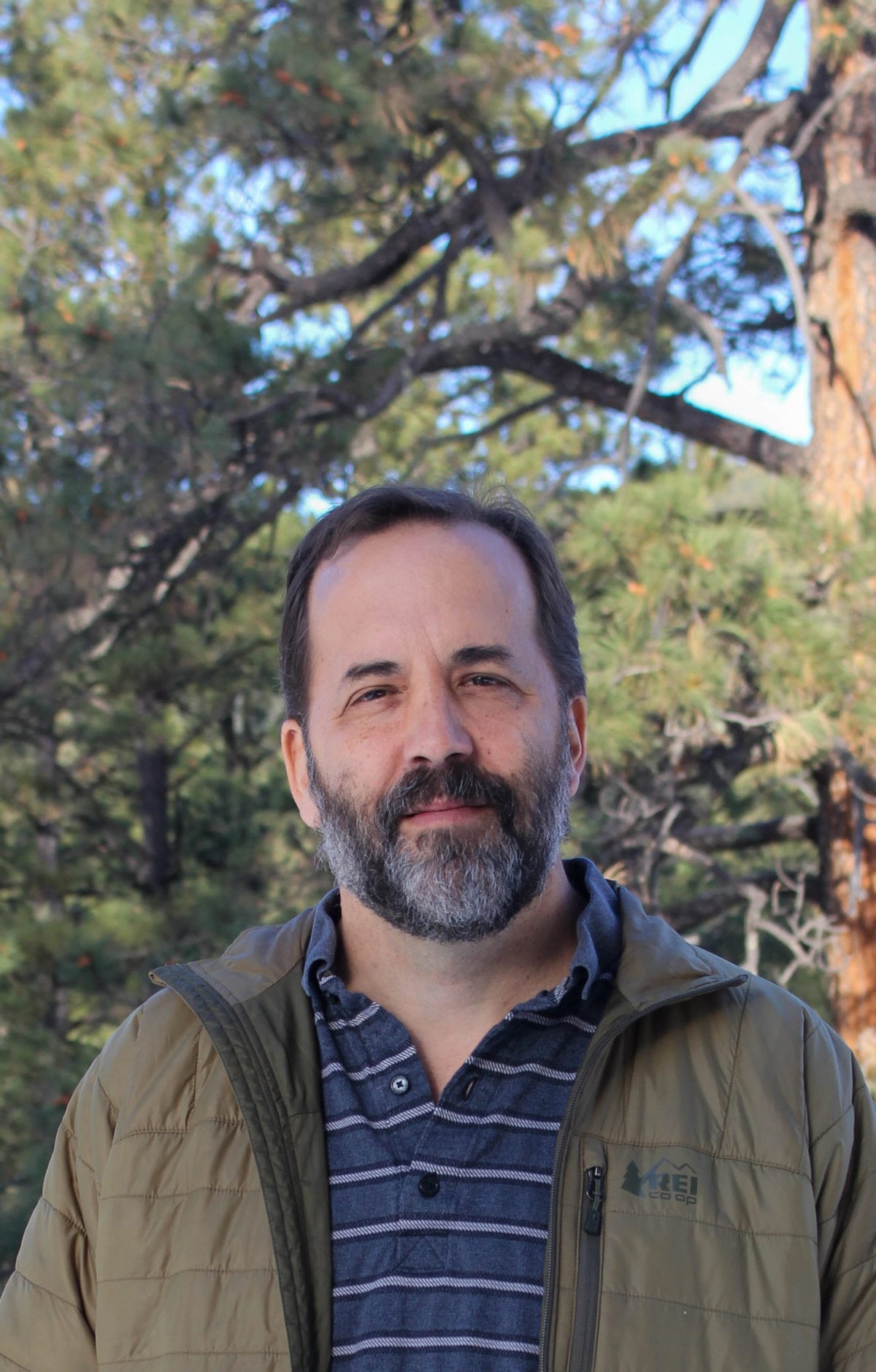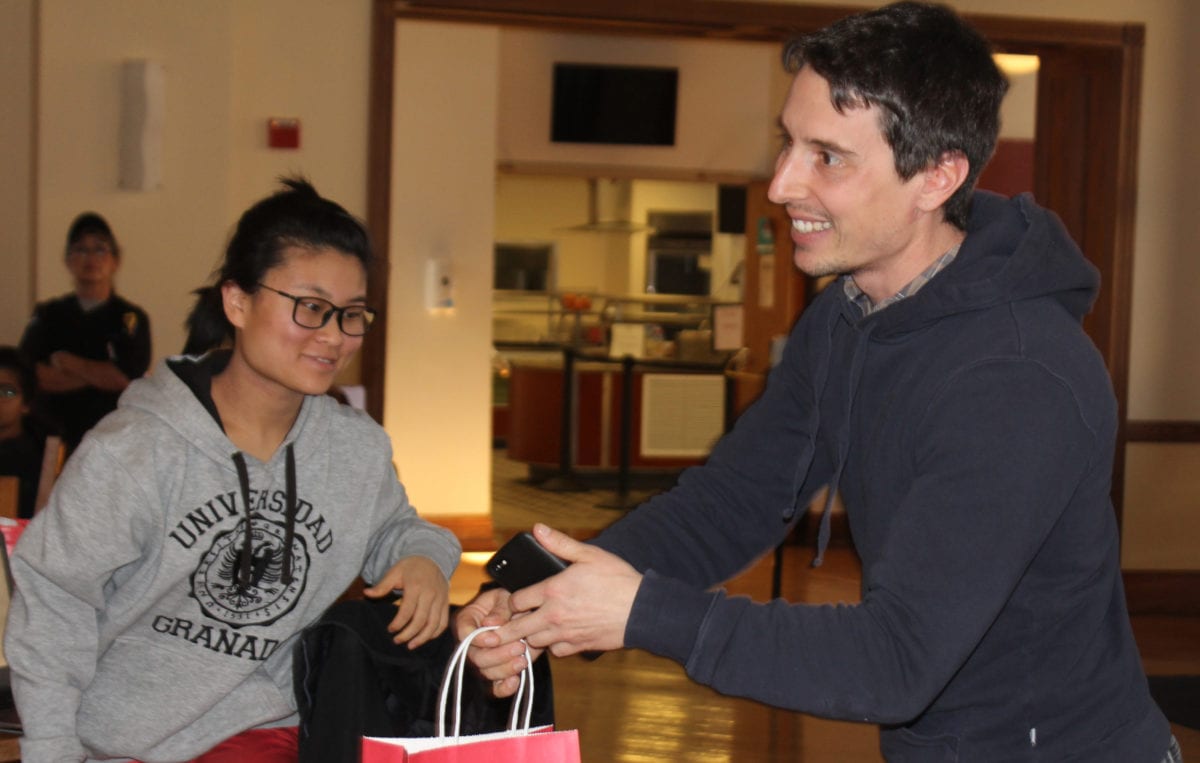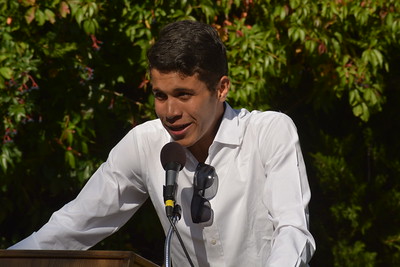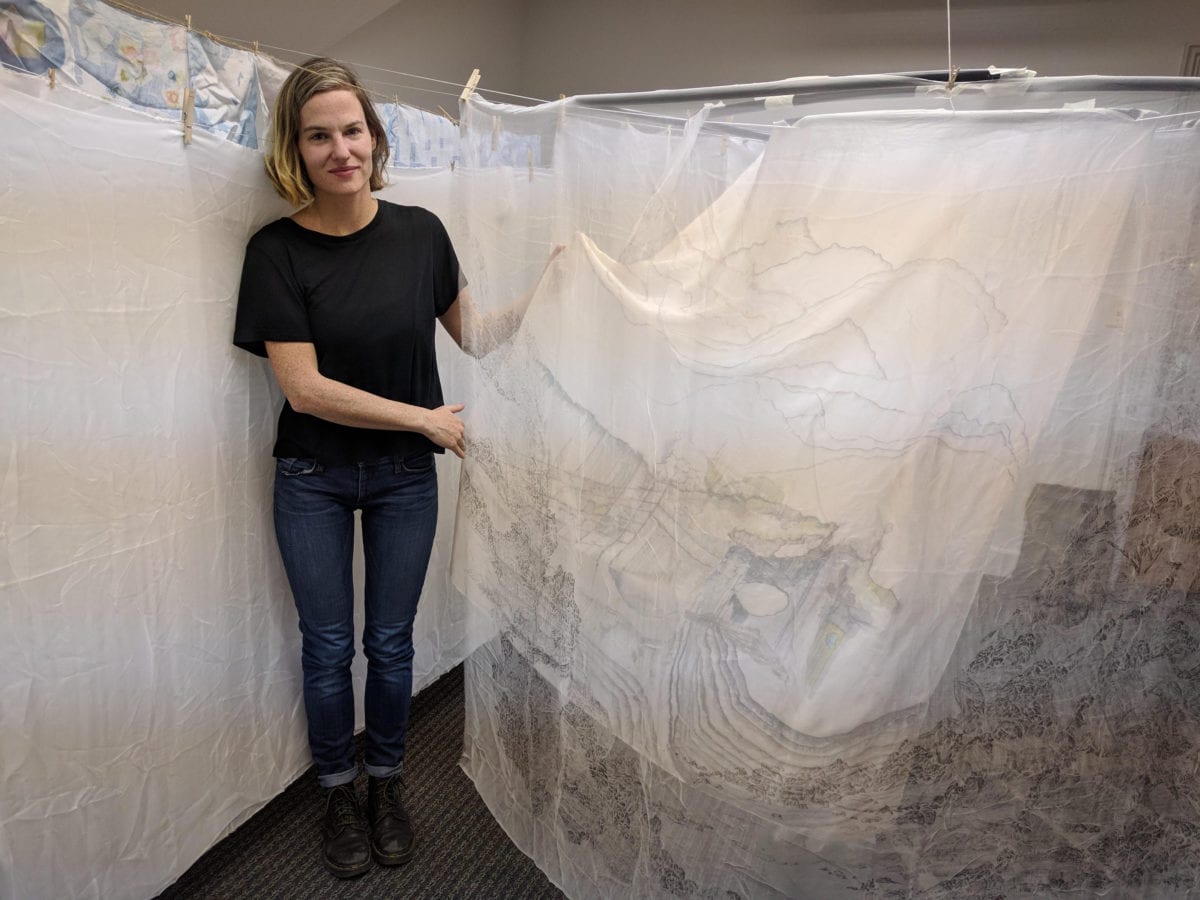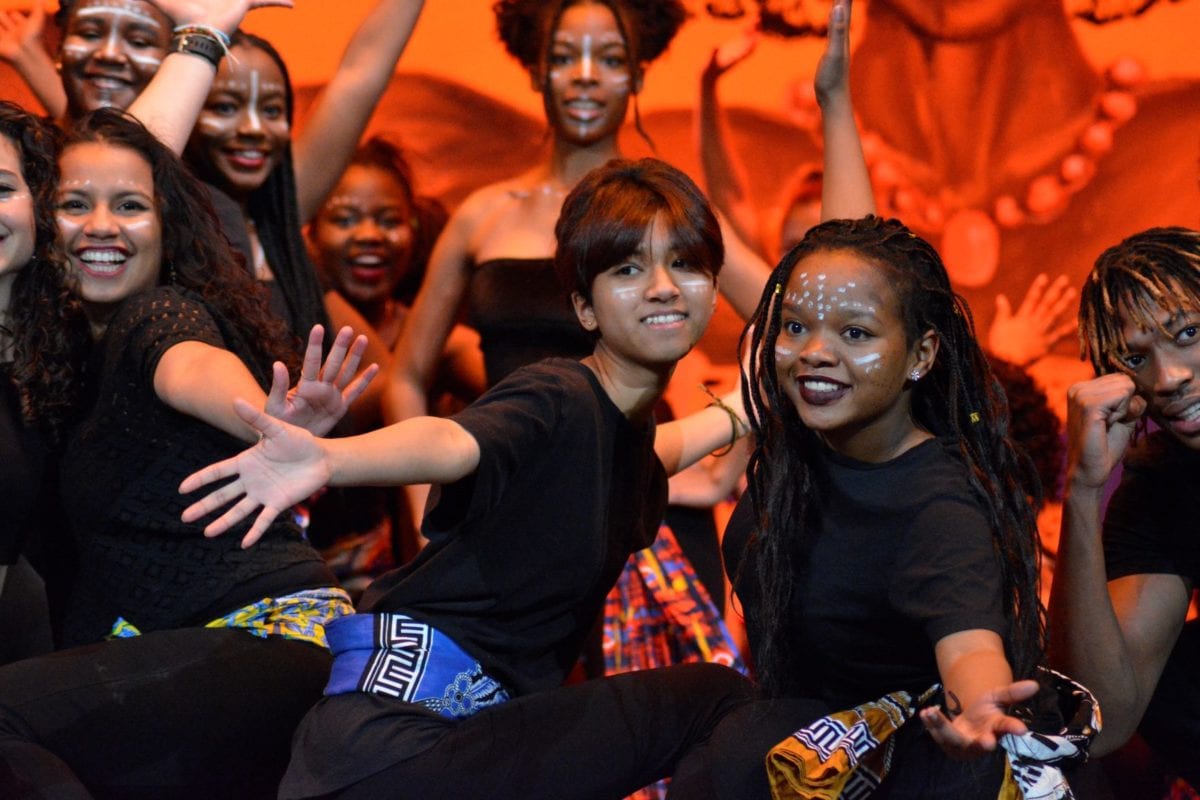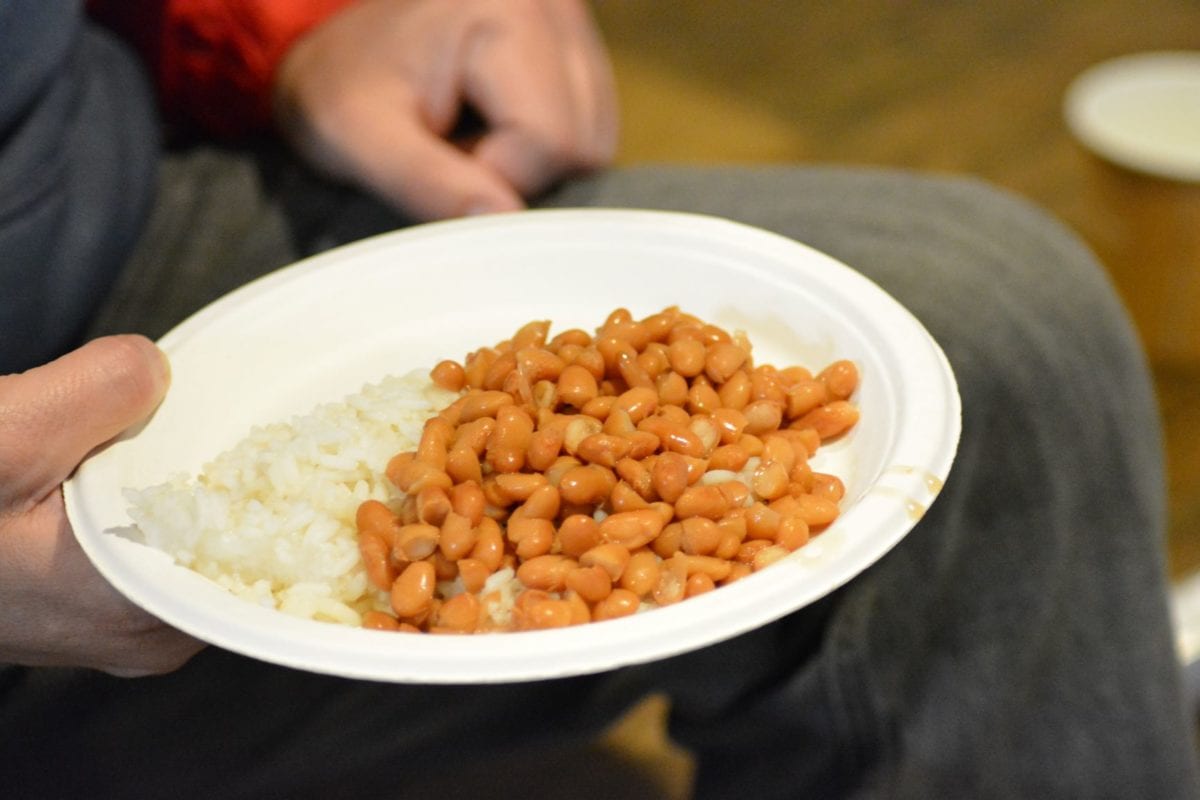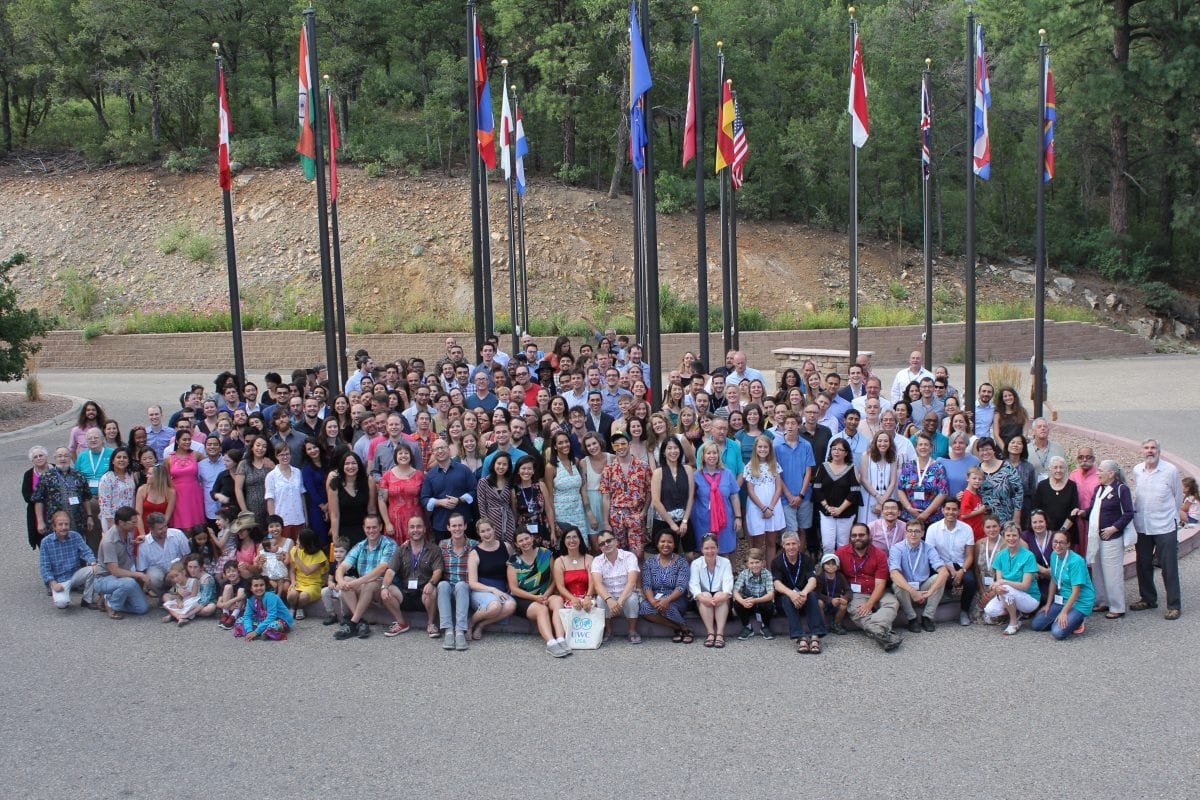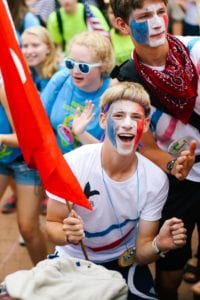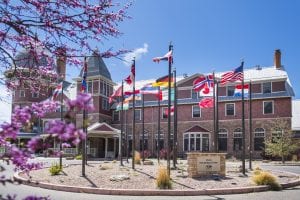Jessica Lanham has returned to her childhood home — the United World College-USA.
“I’m loving it,” said Jess, the daughter of UWC-USA math teacher and residential tutor Shirleen Lanham and retired art teacher Colin Lanham. “It almost feels like summer camp.”
A freelancer designer with a background in art direction and visual design, Jess needed a break from her California life. She also missed New Mexico.
“I had strong desire for New Mexico and the landscape, and this will probably be my parents’ last year here,” said Jess. “I was in a housing situation where I would have to move.”
So she left San Francisco and arranged to offer workshops to UWC-USA students in exchange for an art studio on campus. The studio is on the top floor of Sasakawa. She’s absolutely loving it!
“It’s been super easy to fall into the community here,” the 33-year-old said. “There’s a younger faculty who are very welcoming and friendly. I’m just really grateful for that. I like to join in on the student activities.”
At age one, Jess moved from UWC Swaziland to UWC-USA with her family. Since UWC provides faculty housing, Jess and her brother, Nick, grew up on the campus where their mother has taught for 32 years. Colin taught here for 30 years before retiring in May 2018.
“I loved growing up here,” Jess said. “Two of my good friends were (retired English teacher) Anne Farrell’s daughter and my other friend was Anna Curtis, Linda Curtis’ (retired dean of students) daughter.”
“We would get into all kinds of mischief,” Jess added. “We ran all over campus and played down by the river. Our mothers never knew where we were.”
In high school, Jess befriended some UWC-USA students. She always looked up to them, and attended cultural day shows and other performances.
“It was just a real treat to have this as my backdrop of growing up and getting to go to all those things,” she said. “I thought they were the coolest people and couldn’t wait to be a UWC student.”
The wait turned into reality when Jess left Robertson High School in Las Vegas to attend UWC Atlantic College in Wales, graduating in 2005.
“Atlantic College was really different from UWC-USA,” said. “They had more students than here, and it was a very different climate.”
At UWC-USA, she experienced the fun, but not the stress of the academics and the international baccalaureate.
“The IB was hard and it kinda kicked my butt,” she said.
Taking IB art allowed Jess to completely immerse herself in fashion and installation. Prior to going to Atlantic, art was just a hobby. After UWC, Jess went to the School of the Art Institute of Chicago on a Davis Scholarship.
“I went there with the intention of doing fashion design and ended up hating the program,” Jess said. “So I took an introduction to etching class and fell in love with print making.”
She received a bachelor’s of fine arts in printmaking in 2009 and moved to San Francisco, which is known for its print-making community. Her brother and boyfriend at the time also lived there.
Concerned about finding work to pay her student loans, Jess taught herself graphic designing and worked at editing house. She ended up in marketing, working as an art director. After four years, Jess wanted a challenge and got into freelancing.
“I’ve got a pretty good steady business now,” she said. “It allows me to have flexibility and mobility, so I’m here for four to five months.”
While in Montezuma, Jess continues to run her business and is working on light installations created on silk fabric. She plans to present her designs and artwork to students.

